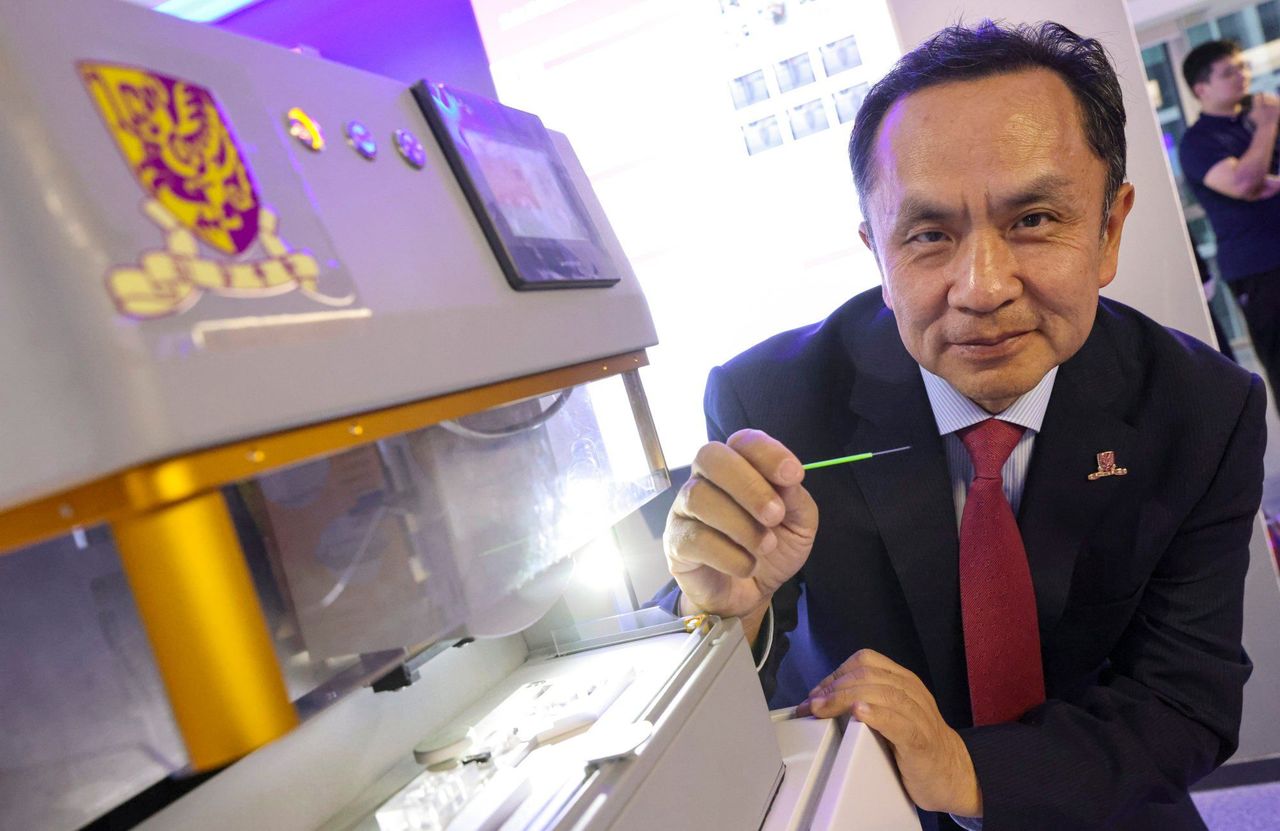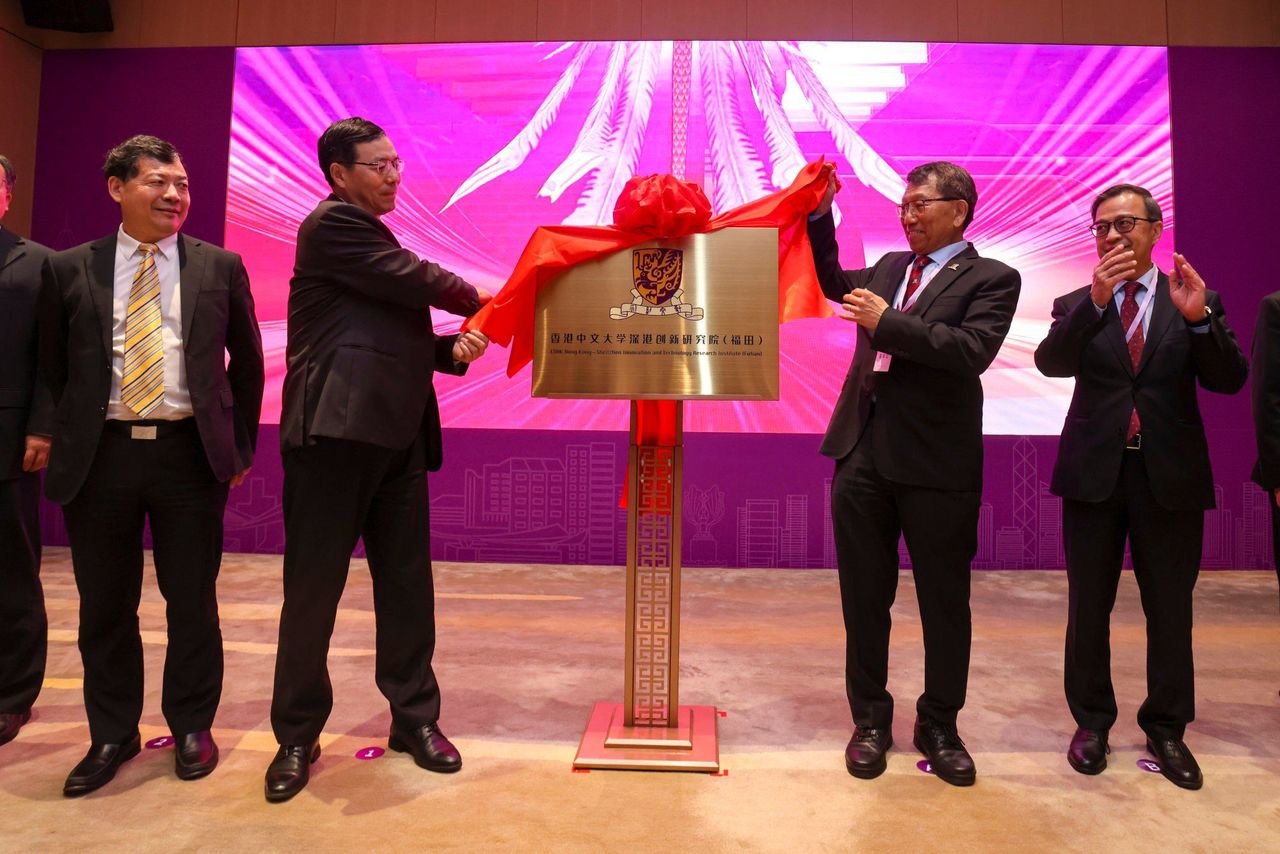Hong Kong News

‘Chinese University centre helped introduce new tech amid Hong Kong’s Covid curbs’
Researchers from an institute set up by the Chinese University of Hong Kong in neighbouring Shenzhen have said the centre has helped overcome hurdles in transforming new technology into products and services in the past two years of cross-border travel curbs amid the Covid-19 pandemic.
Liu Yunhui, a professor of mechanical and automation engineering at the university, was one of the scholars who led about 50 staff members to take more than 10 projects to mainland China since the founding of the Hong Kong-Shenzhen Innovation and Technology Research Institute (Futian) in December 2020.
The centre was established during a time when cross-border travellers needed to undergo quarantine, and the requirement made it challenging for researchers to carry out work on the mainland, he said.
 Liu Yunhui with an automatic robotic system for transferring and vitrifying embryos in assisted reproduction.
Liu Yunhui with an automatic robotic system for transferring and vitrifying embryos in assisted reproduction.
Taking up two storeys of a block in the Shenzhen-Hong Kong Innovation and Technology Co-operation Zone, the centre’s official opening was postponed to Tuesday due to the pandemic, even though it began operations in 2020.
Among the key projects is an automatic robotic system for transferring and vitrifying embryos in assisted reproduction created to reduce human error in the manual procedure.
“Communications with manufacturers and potential buyers in the Greater Bay Area were direct. As we have a physical presence in the major market, they could see our results directly during the Covid-19 days,” Liu said on Tuesday at the institute located in Futian District near the border.
“A base in Shenzhen ended up helping our university remove a lot of hurdles in the process of realising our research outcomes.”
The bay area refers to the Chinese government’s scheme to link the cities of Hong Kong, Macau, Guangzhou, Shenzhen, Zhuhai, Foshan, Zhongshan, Dongguan, Huizhou, Jiangmen and Zhaoqing into an integrated economic and business hub.
Liu said the technology was now at the testing stage, and they aimed to apply it in mainland hospitals and in vitro fertilisation clinics in Hong Kong.
Researchers at the institute mainly specialised in engineering and medicine and about 30 of them were from Hong Kong, he said. All projects were approved and partly funded by the Shenzhen government.
 The opening ceremony for the Hong Kong-Shenzhen Innovation and Technology Research Institute (Futian) in Shenzhen.
The opening ceremony for the Hong Kong-Shenzhen Innovation and Technology Research Institute (Futian) in Shenzhen.
Officiating an inauguration ceremony in Shenzhen, the university’s president Rocky Tuan Sung-chi said the institute focused on artificial intelligence (AI), robotics and medical devices and aimed to promote the development of smart healthcare and public health services in the bay area.
“To further promote research and application in advanced technology, we need to nurture talent in the [innovation and technology industry] through the institution,” Tuan said.
“We will encourage the establishment of advanced technology companies and collaboration with them to facilitate transfer technology and initiate forward-looking, high-impact projects.”
The university is among the first in the city to set foot on the mainland, with its Shenzhen campus being established back in 2012.
Tuan also responded to questions relating to ChatGPT, an AI-based chatbot platform, following the ceremony, saying the policy for using the tool at its educational institutions on the mainland was consistent with that of the Hong Kong campus.
The university earlier announced that students could be expelled if they were found to be using the platform improperly or without authorisation in their work.
He said it would be “unnatural” to reject the AI tool at the university but caution was needed.











